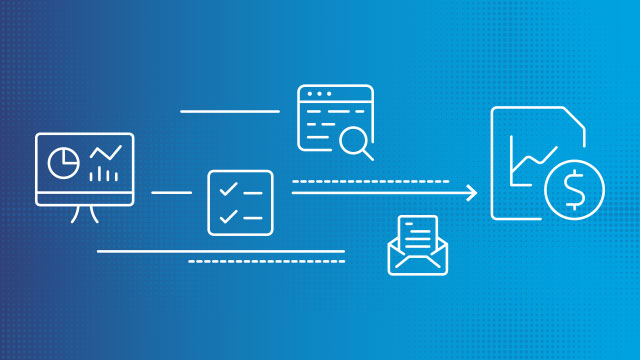
The State of Denial Management Part 2: How to Build a Comprehensive Denials Program
Hospitals and health systems continue to deal with high claim denial rates. A a poorly developed denials management strategy can tip a hospital on the brink of financial crisis.
As clinical documentation becomes more complex and the reimbursement environment more stringent, providers must reconsider their traditional approaches to denials management. The status quo will no longer do. However, building new revenue cycle processes from scratch is no simple feat, either.
Hospital and health system leaders should consider what a comprehensive approach to denials management might look like, then figure out how emerging technologies and revenue cycle teams can make this vision a reality.
The “three-legged stool” of denials management
A comprehensive denials management strategy must account for the whole life of a claim, from initial clinical documentation through appeal when necessary. Dawn Castro, vice president of Revenue Cycle with Conifer Health Solutions, a provider of technology-forward revenue cycle solutions, described a comprehensive denials strategy as encompassing three primary areas of focus. “It’s really all about prevention, recovery and escalation,” she said in an interview with Becker’s.
Ms. Castro’s colleague Michelle Castillon, Conifer’s vice president of AR Operations, says the three primary focus areas for denials management are like a “three-legged stool,” meaning each area of focus is critical to the success of the other.
Ms. Castillon told Becker’s, “In order to be successful in prevention, you have to be strong on recovery, and you have to be able to escalate and rapidly work with payers, which circles back and drives prevention strategies.”
How Technology And Teamwork Can Build the “Three-Legged Stool” of Denials Management
Data and the capacity to derive actionable insights from said data are crucial to the overall success of the revenue cycle. However, data on payer behavior can be especially useful to prevent denials from occurring in the first place. Technology can help providers capture data on payer behavior during the escalation process, which can inform how claims are formulated on the front-end of the revenue cycle to minimize barriers to reimbursement.
“We use data analytics to create payer scorecards that document things like a payer’s first-pass payment rate,” Ms. Castro said. In addition to using these insights to strengthen documentation processes, Ms. Castro said these scorecards support Conifer’s provider partners’ approach to payer contracting. “We also use this data to bolster contract language to help avoid long-term litigation with a payer,” Ms. Castro said. “We really want to solve potential denials at the lowest level possible without legal teams getting involved.”
The recovery component of denials management is focused on achieving fair reimbursement as quickly as possible. The current high rate of denials nationally complicates this effort as staff can become overwhelmed by denied claims, slowing down the rate of appeals. With data on payer behavior in place, hospitals and health systems can leverage technology-powered machine learning to automate portions of the appeals process. One area this has been especially helpful in is bulk denials. Conifer has been able to group payer issues with a unique “fingerprint” that allows similar denials to be resolved in one bulk appeal by using machine learning and advanced trending methodologies. “You want to be able to create automated appeals for low-dollar, low-complexity disputes,” Ms. Castillon said, adding that machine learning technology can also be leveraged to support staff when working on manual appeals by offering them insights into payer behavior in real-time as they’re working the claim.
“We’re able to create smart texts to really help our clinicians and our technical writers drive home the key parts of the argument an appeal needs to make,” she said.
Once a denial reaches the point of escalation, the human engine of the revenue cycle kicks into overdrive. For effective escalation, the teams tasked with this endeavor must have a sophisticated understanding of claims management. To get the right people in place and ensure staff have the resources to get the job done, providers must optimize workflows. The team members essential to escalation efforts should not have to devote an inordinate amount of time to less rigorous tasks.
“We have an escalation process that’s supported by technology-enabled solutions that helps us utilize our resources in a smarter fashion,” Ms. Castro said. “We are then able to create high-caliber teams that can interact directly with the health plan.”
How Technology And Teamwork Can Build the “Three-Legged Stool” of Denials Management
Data and the capacity to derive actionable insights from said data are crucial to the overall success of the revenue cycle. However, data on payer behavior can be especially useful to prevent denials from occurring in the first place. Technology can help providers capture data on payer behavior during the escalation process, which can inform how claims are formulated on the front-end of the revenue cycle to minimize barriers to reimbursement.
“We use data analytics to create payer scorecards that document things like a payer’s first-pass payment rate,” Ms. Castro said. In addition to using these insights to strengthen documentation processes, Ms. Castro said these scorecards support Conifer’s provider partners’ approach to payer contracting. “We also use this data to bolster contract language to help avoid long-term litigation with a payer,” Ms. Castro said. “We really want to solve potential denials at the lowest level possible without legal teams getting involved.”
The recovery component of denials management is focused on achieving fair reimbursement as quickly as possible. The current high rate of denials nationally complicates this effort as staff can become overwhelmed by denied claims, slowing down the rate of appeals. With data on payer behavior in place, hospitals and health systems can leverage technology-powered machine learning to automate portions of the appeals process. One area this has been especially helpful in is bulk denials. Conifer has been able to group payer issues with a unique “fingerprint” that allows similar denials to be resolved in one bulk appeal by using machine learning and advanced trending methodologies. “You want to be able to create automated appeals for low-dollar, low-complexity disputes,” Ms. Castillon said, adding that machine learning technology can also be leveraged to support staff when working on manual appeals by offering them insights into payer behavior in real-time as they’re working the claim.
“We’re able to create smart texts to really help our clinicians and our technical writers drive home the key parts of the argument an appeal needs to make,” she said.
Once a denial reaches the point of escalation, the human engine of the revenue cycle kicks into overdrive. For effective escalation, the teams tasked with this endeavor must have a sophisticated understanding of claims management. To get the right people in place and ensure staff have the resources to get the job done, providers must optimize workflows. The team members essential to escalation efforts should not have to devote an inordinate amount of time to less rigorous tasks.
“We have an escalation process that’s supported by technology-enabled solutions that helps us utilize our resources in a smarter fashion,” Ms. Castro said. “We are then able to create high-caliber teams that can interact directly with the health plan.”
A commitment to collaboration and performance improvement
A comprehensive denials management program requires support across an organization, starting at the executive level to frontline clinicians and the revenue cycle staff. And the team tasked with ensuring the strategy is successful should be fully committed — the effort cannot be viewed as a side project to be worked on during lull periods. The effort requires widespread buy-in and a commitment to continuous improvement.
As clinical documentation becomes more complex and the reimbursement environment more stringent, providers must reconsider their traditional approaches to denials management.
“A strong prevention program requires a commitment to methodologies that support continuous process improvement,” Ms. Castillon said. “It also requires a very cohesive team set up to interact, share and collaborate. And this team has to be driven by that performance improvement mentality.”
If prevention, recovery and escalation make up the structure of the denials management three-legged stool, then commitment from leadership and staff are the sturdy ground beneath its legs.


